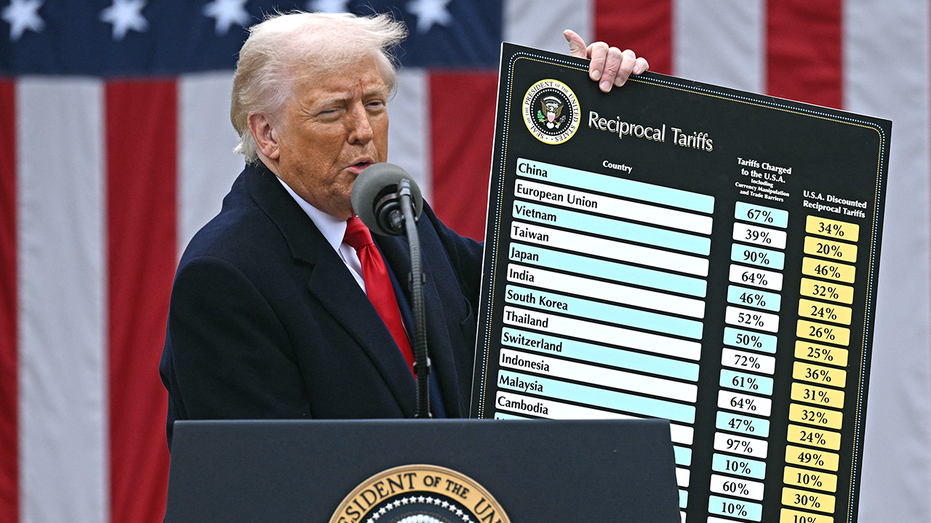‘SkinnyTok’ weight-loss trend could lead to food deprivation, experts caution

Social media can be a great source of fitness, nutrition and wellness tips — but it also has some potentially harmful content.
Enter "SkinnyTok," a popular weight-loss trend making the rounds on TikTok.
Creators are pairing the hashtag with videos that share various ways to lose weight, many of them based on the goal of getting as thin as possible in a short amount of time.
CHICK-FIL-A FOOD AND EMPLOYEES HELPED MAN LOSE WEIGHT AND CHANGE HIS LIFE
As of April 26, there were more than 60,000 videos from creators talking about SkinnyTok. One of those is Mandana Zarghami, 25, a business owner and influencer in Miami, Florida.
"What you eat in private will show in public," Zarghami told her followers in a recent video.
The influencer spoke with Fox News Digital about her perception of the worldwide SkinnyTok trend.
"There’s an emphasis on portion control, prioritizing daily movement and knowing what foods will make you feel better from the inside out and more," she said.
The creator acknowledged, however, that some of the content could be triggering for those who have battled disordered eating.
"While some content under the SkinnyTok trend can promote motivation around health and wellness, it can also unintentionally glamorize unhealthy habits or unrealistic body standards if you're following the wrong influencer or content creator," Zarghami cautioned.
At the same time, she said, "you control what you consume."
"It’s a little hard to be sensitive to each group, because a lot of the people who talk about SkinnyTok on their platforms also battled disordered eating and overcame it with healthy lifestyle choices," Zarghami added.
Dr. Brett Osborn, a Florida neurosurgeon and longevity expert, said he has witnessed the "devastating consequences" of extreme thinness firsthand, including women with fractured bones caused by malnutrition.
"This is a growing crisis, and it is being dangerously celebrated on social media under hashtags like #SkinnyTok," he told Fox News Digital.
"When young people chase after extreme thinness through starvation diets, they invite frailty into their lives. The body, deprived of caloric energy, becomes extremely fragile."
In teenagers and young adults, malnutrition disrupts hormones, weakens immunity, impairs cognitive function and can cause lasting damage to their still-developing brains, according to Osborn.
FIRST GLP-1 PILL FOR WEIGHT LOSS, DIABETES SHOWS SUCCESS IN LATE-PHASE TRIAL
Physical effects of malnutrition can include hair loss, reduced bone density and, in severe cases, irreversible structural damage, he added.
Low body weight or minimal body fat does not equate to good health, the doctor said.
"Starvation is not a virtue – it is an abandonment of the body’s nutritional needs," he said. "The SkinnyTok trend preys on impressionable youth, particularly young women, encouraging them to shrink rather than thrive."
Rather than focusing on "extreme thinness," Osborn called for a focus on building muscle, which he described as the "cornerstone of vitality."
"In older adults, muscle loss — or sarcopenia — is a medical warning sign linked to increased risks of falls, fractures, hospitalizations, cognitive decline and even mortality," he cautioned.
"Muscle loss doesn’t just weaken the body — it erodes the mind, hastening the onset and progression of dementia. The body and the brain are interconnected, and when one suffers, so does the other."
To those embracing the SkinnyTok trend, Osborn recommends that they shift the focus to building muscle.
"Muscles are your shield against disease and decline. Being lean and strong, not thin and frail, is the true measure of health," he said.
‘THE CARNIVORE DIET SAVED MY LIFE AFTER DECADES OF ANOREXIA'
"Instead of glorifying starvation, we should teach our youth to nourish their bodies and minds, build resilience through muscle gained by strength training, and prioritize bodily function over any short-lived trend."
Dr. Jillian Lampert, vice president of The Emily Program, an eating disorder treatment center based in Minnesota, also called out the potential risks of the SkinnyTok trend.
"This content dangerously glorifies content that encourages people to take drastic measures to change their bodies," she told Fox News Digital. "It also further ensnares people already struggling with their body image and thoughts of size and shape, reinforcing the notion that being thin at all costs is the norm."
The behaviors in many of the videos are "often extreme" and highly limit foods or food groups, Lampert noted.
LITTLE-KNOWN EATING DISORDER NEARLY STARVED A 9-YEAR-OLD: 'IT WAS TORMENTING HER'
The algorithms used by social media platforms make the content even more dangerous by amplifying the messages, according to the expert.
"Looking at one TikTok with even some less toxic body image content will teach the algorithms to send you more and more and more until your feed has become an avalanche of toxic content," Lampert warned.
As people scroll through countless videos of "ideal" bodies and lifestyles, this often leads them to conclude that they’re not thin enough or attractive enough.
"Continual assessment of appearance and eating habits can make a person hypercritical and hyper-fixated on perceived flaws, thus fueling the cycle of eating less, which often leads to overeating and overexercising, which often leads to fatigue and loss of control around food," said Lampert.
"It is a vicious cycle that quickly spirals from external messaging to internal criticism."
Dr. Anastasia Rairigh, a Tennessee-based family physician and obesity medicine specialist at the virtual health platform PlushCare, warned that extreme weight-loss behaviors can be deadly.
"As a person severely limits their caloric intake, the body struggles to maintain the correct electrolyte balance," she shared with Fox News Digital.
"When a person’s electrolytes are severely unbalanced, they can experience heart arrythmias or, in severe cases, cardiac arrest. Even if a person does not experience this, severe food deprivation can lead to damage to the heart, bones and brain."
People who deprive themselves of food may also notice effects on cognition, mood and sleep, Rairigh warned.
"Modeling a healthy attitude toward food is critically important to combating the negative influence of toxic diet culture," she said, recommending that people focus on food as a source of energy rather than an enemy.
CLICK HERE TO SIGN UP FOR OUR HEALTH NEWSLETTER
"Supporting young people to focus on activities and interests outside social media has been shown to be helpful as well," she said.
"Encourage and facilitate positive activities in the real world as a counter to time spent on social media."
Those who are showing signs of disordered eating should see a doctor, Rairigh advised.
"While disordered eating is deadly, there is hope and treatment. Do not be afraid to reach out for help."
Zarghami, the TikTok creator, reiterated the importance of setting positive examples on social media.
For more Health articles, visit www.foxnews.com/health
"Many of us that promote SkinnyTok focus on proper nutrition, walking over 10,000 steps a day and promoting a healthy and active lifestyle," she told Fox News Digital.
"It’s so important to approach these trends with balance, focus on overall well-being rather than appearance, and encourage sustainable, nourishing choices that support both physical and mental health."
What's Your Reaction?
 Like
0
Like
0
 Dislike
0
Dislike
0
 Love
0
Love
0
 Funny
0
Funny
0
 Angry
0
Angry
0
 Sad
0
Sad
0
 Wow
0
Wow
0























